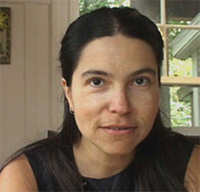home | metro santa cruz index | features | santa cruz | feature story

En masse: Sacramento lawyer Mark Merin has become a thorn in the side of county governments throughout the state by attracting thousands of claimants to his lawsuits, which challenge the constitutionality of strip-searches at county jails.
Stripped
Unpardonable abuse or vital safety measure? A new lawsuit over Santa Cruz County sheriff strip-searches could open the floodgates for a multimillion-dollar class action.
By Steve Hahn
The Fourth Amendment prohibits "unreasonable searches" and requires "probable cause" before any officer of the law may search a person or their property.
Considering the intent of this amendment--which was to prevent the pre-Revolution British practice of utilizing the aptly named "Writ of Association" to freely search anyone and anything the officers believed had any relevance to a case--these all sound like reasonably straightforward instructions to modern-day peace officers engaged in an investigation.
Complications quickly arise, however, when applied to current arrest procedures here in Santa Cruz and across the nation.
For instance:
Is it an unreasonable invasion of privacy for a suspect, before being convicted of a crime, to be stripped naked in front of strangers?
What if they are about to enter a facility housing violent gang members and drug addicts?
Is there "probable cause" to strip-search an inmate if they were arrested on a traffic violation and had no prior record of drugs or violence?
And does the act of arrest itself imply "probable cause" for a strip search?
These are just a few of the legal questions that will soon be explored as a new lawsuit filed against the Santa Cruz County sheriff's office plays itself out in federal court.
Santa Cruz County resident Dennis Butler and his attorney Mark Merin filed the lawsuit, which alleges that two separate pre-trial strip searches of Butler were conducted in a room with other naked men and violated his rights under the U.S. Constitution. Butler was arrested last October after he was caught driving without a license.
Merin is attempting to certify the case as class-action, which could put the county in piping hot water due to the fact that California penal code mandates that a minimum of $1,000 be paid out to each claimant if the judgment falls in their favor. Merin adds that individual plaintiffs in some cases have been rewarded as much as $1 million.
Pleading the Fourth
"This is a genuine issue that cuts across all the people who were illegally strip-searched," Merin argues. "It's a question of policy; whether the policy is legal or illegal. If it's an illegal policy, then everyone was strip-searched illegally."
Other counties that have settled similar lawsuits were covered by litigation insurance and only had to pay a fraction of the settlement out of pocket. According to Diana Phillips of the County Administrative Office, Santa Cruz County is also covered by litigation insurance in some instances but not others. She said further review of the case was needed before it was clear which category the case would fall under. She adds that it's also unclear at this point where money for a settlement or judgment against the county would come from.
Merin, who won a settlement paying out $21 million to nearly 15,000 claimants in a 2004 illegal strip-search lawsuit filed against the County of Sacramento, believes the federal courts have made their stance clear in regard to how the Fourth Amendment applies to strip-searches.
"Reasonable suspicion has been interpreted by the courts since 1979, when the Supreme Court of the United States decided a case called Bell v. Wolfish," Merin says. "The Supreme Court said you couldn't do this [strip-search inmates] without reasonable suspicion that the inmate is carrying contraband or weapons." The courts have said [that] people who are strip-searched before they are even arraigned, that they are entitled to the most protection."
Although a reading of the Bell v. Wolfish decision confirms that this wording is in fact present, it also reveals that the court ruled against the inmates, who in that case had been strip-searched after contact with visitors. The court reasoned that "balancing the significant and legitimate security interests of the institution against the inmates' privacy interests, such searches can be conducted on less than probable cause and are not unreasonable."
A host of other cases heard in federal appellate courts--Johnson v. Phelan, Michenfelder v. Sumner, Thomspon v. Souza--have all cited hypothetical situations in which privacy rights may apply, yet in the end have consistently upheld the right of jail officials to strip-search inmates in order to ensure jail safety.

Limits of freedom: Former San Jose police officer Ron Martinelli believes that the privacy protections of the Fourth Amendment should be subordinated to the safety of both inmates and guards, and that the federal courts have historically supported this view in strip-search cases.
Safety First
Not everyone agrees with Merin's contention that the courts have established Fourth Amendment precedent with regard to inmate privacy.
Ron Martinelli, a former San Jose police officer with a doctorate in criminology, currently provides expert testimony in Monterey County, specializing in Fourth Amendment legal issues. Martinelli believes Santa Cruz County will win if the case ever goes to court. He criticized other counties across California that have "capitulated" to the threat of class action lawsuits and agreed to expensive settlement payouts before the case was heard. He encouraged Santa Cruz County to fight the lawsuit "tooth and nail."
"I'm not going to call him unethical, but here's a guy who doesn't care about the big picture," says Martinelli. "Obviously anybody who is going to be an arrestee is going to want to be handled with as much laxity as possible. Inmates, especially ones of a criminal mind, want to bring contraband into the institution; they want to bring weapons into the institution, especially gang members. Don't forget contraband in an institutional setting is like money, and so power is gained in the institution by contraband being smuggled in." Martinelli argues that Merin "is looking for a quick buck; he's not looking towards a legitimate safety concern."
While the Santa Cruz County sheriff remains tight-lipped on the matter, statewide sheriff representatives claim the across-the-board search policy is intended to prevent contraband weapons and drugs from being smuggled into jail facilities where they could be used to harm guards or other inmates.
Steve Szalay, executive director of the California State Sheriffs' Association, argues that Santa Cruz's policies are in line with jail safety procedures across the state.
"When detainees go to court, they come into contact with persons," he says. "Unfortunately from experience we know that detainees on occasion can pick up weapons and drugs in the court environment and bring them back to the jail."
This is presumably why, after a judge released Butler under his own recognizance, he was allegedly strip-searched for a second time before briefly re-entering the jail for his civilian clothes and possessions.
Merin counters that the blanket argument being made by sheriff officials misrepresents the meaning of probable cause within the fourth amendment.
"There has to be 'particularized reasonable suspicion' that is focused on the individual," he says, again quoting the Bell decision. "So, if you have an individual standing in front of you who looks to be acting bizarrely, then you can strip-search that person. But you can't take the 66-year-old grandmother who was caught jaywalking and found [to have] an old parking ticket and claim that the policy is that you strip-search that person."
Merin believes there was no reason to focus this kind of particularized suspicion on Butler, who has a history of alcohol and traffic arrests, but no record of drug- or violence-related crimes.
While the legality of strip-searching inmates regardless of the reason for their arrest may be unclear under the Fourth Amendment, the practice would appear to fly directly in the face of the California penal code, which states, "No person arrested and held in custody on a misdemeanor or infraction offense, except those involving weapons, controlled substances or violence," shall be subjected to a strip search unless a peace officer has determined there is "reasonable suspicion based on specific and articulable facts." The penal code further requires a supervising officer to sign off on any strip-searches before they are conducted to ensure that probable cause in fact exists.
Even so, it remains unclear what impact a state law would have on a decision being made in federal court. Martinelli predicts that the legal debate will generally be constrained to U.S. constitutional issues in this case.
"Correctional staff obviously have to be operating within scope and authority," he says. "If there are no abuses of power, no violations of policy, and they're acting objectively reasonable, then there is no legitimate foundation for a lawsuit. What happens is that these agencies capitulate too easily."
Million-Dollar Mistreatment
The Santa Cruz lawsuit is the latest in a string of cases in the state and across the nation focusing attention on the larger question of strip-searching procedures, especially at jail facilities where most inmates have yet to be proven guilty or are being held for a short period of time.
Merin has strip-search-related class-action lawsuits under way in San Francisco, Contra Costa, Solano, Alameda and San Mateo counties. In addition to the lucrative Sacramento settlement, he has won a $6 million settlement against Miami-Dade County in Florida and a nearly $2 million settlement in Lincoln County, N.M.
According to a 2004 article in the online legal news source The Recorder, published before Merin's hometown Sacramento case closed, the attorney was slated to make as much as $3 million in legal fees from a $15 million settlement. Although records of the actual amounts received could not be obtained in time for this story, Merin says the final Sacramento settlement netted some $20 million overall.
Critics of across-the-board strip-searching policies argue that the practice is so belittling and degrading, especially when done in groups with no privacy, that it should only be performed under special circumstances.
"It is one thing if the person you are naked in front of is not threatening to you, is not making you feel embarrassed about something that has bothered you," says Merin. "I've talked to some people who have been required to expose parts of their body they wouldn't normally expose to anybody, not even their spouses. Some very religious people, like Mormons, have been required to take off their holy garments that are never taken off. So, to me, it's the most dehumanizing thing some people can experience."

Systems of control: Inmate rights activist Rose Braz argues that strip-search policy should be seen in the context of inmate-guard power dynamics and not solely in terms of safety.
What Would Michel Foucault Do?
Many inmate-rights defenders identify the alleged overuse of strip-searching within jails as a symptom of the control mentality pervading the modern prison system, both at home and internationally.
Rose Braz directs the Oakland chapter of Critical Resistance, a national organization whose mission is to "end the prison-industrial complex." She sees the practice of strip-searching all incoming inmates as a way of instilling in them a power dynamic that will govern the remainder of an inmate's time in jail.
Braz says that there's "probably no bigger power differential" than the one "between someone who's locked in a cage and the person who's holding the key and determining everything from when that person can take a shower to the larger picture of when that person is going to get access to a lawyer or a telephone."
While strip-searching as a specific practice may be a growing concern among prison watchdogs, the role of observational control mechanisms has long been recognized as a distinct feature of the modern prison system. Michel Foucault, in his 1975 book Discipline and Punish, outlines the role that visibility--and, more specifically, who has the power to view--plays in establishing the enforced "docility" that he believes has come to define most modern institutions: "He who is subjected to a field of visibility, and who knows it, assumes responsibility for the constraints of power," argued the French theorist. "He inscribes in himself the power relation in which he simultaneously plays both roles; he becomes the principle of his own subjection."
Moving outside "Intro to Critical Theory" classes and into the realpolitik of the judicial system, such concerns are leading some to harshly criticize Santa Cruz County's policy of strip-searching multiple inmates in plain view of each other, especially following arrests for minor offenses.
"It is obvious there was no reason they needed to strip-search somebody in a public setting like that," insists Braz. "There's nothing that's about except humiliation and the assertion of power. I don't mean to compare a strip-search in Santa Cruz with Abu Ghraib, but there is a continuum of what prison is really about. Jail is in and of itself a form of torture. It shouldn't be surprising to us when other forms of abuses follow."
According to California penal code, "All strip-searches shall be conducted in an area of privacy so that the search cannot be observed by persons not participating in the search."
Further bolstering the argument against the group strip-search policy is Title 15 of the California Codes and Regulations 3287, which states, "Whenever possible, unclothed body inspections of inmate shall be conducted outside the view of others."
Ethical and Legal
The Santa Cruz County sheriff's office, however, appears confident that none of their policies fall out of line with legal interpretations of the Fourth Amendment, which will take precedence in federal court.
Sergeant Fred Plageman says, "It's been reviewed by our County counsel, and we feel that it is both ethical and legal."
Martinelli, meanwhile, argues that federal courts have repeatedly ruled that the act of arrest deprives a suspect of certain Fourth Amendment rights.
"Here's what the courts have interpreted. If they're in a custodial setting, they have no expectation of privacy. For both inmate and officer safety, the law fully allows them to be strip-searched," he says. "It actually goes far beyond that. With the exception of attorney-client privilege, law enforcement can listen in to all their phone calls for purposes of inmate and officer safety."
But Merin claims the Santa Cruz policy of strip-searching inmates in a communal, easy-to-see area is an "unreasonable" practice that introduces special considerations beyond the individualized, private strip-searches that have been most often ruled on in the past.
"The Fourth Amendment requires searches, when they are conducted, be done in an area of privacy, so that no person not particularly involved in the search may view it," he says. "That's another quote from a court decision."
The lawsuit Merin is bringing against the Santa Cruz County sheriff's office alleges that not only were multiple male inmates stripped naked in the same room, but female inmates who could see the naked men as they undressed in front of their cells caused additional embarrassment. Merin also alleges that strip-searches occur in a centralized area of the jail that does not provide the legally mandated privacy from prying eyes.
"Even if they had reasonable suspicion to justify a strip-search, doing it in groups still means they are going to have to pay a $1,000 fine to each one of those people they strip-searched in a group," he says. "It shocks me that they haven't changed this policy yet."
Hero or Villain?
Shifting roles from lawyer to social philosopher, Merin argues that our clothing is a symbol of what makes us truly human and that, nowadays, the first priority of a jailing institution is to take away all symbols of human freedom.
"[Inmates] are being made into animals; it's a dehumanization process that leads to people not questioning when they're given directions," he says with passion in his voice. "'Put your hands in your pockets! Stand up against the wall! Don't look at me! Who do you think you are?' These are all orders that are given repeatedly and are approved. The use of profanity in jails is very common, and it leads to the denigration of the individual. Jail is the last place you want to find yourself. If you have a mind or if you open your mouth, you are going to get it. It's no surprise that we see nudity so prominently featured in these abuses at Abu Ghraib. These connections are rather apparent."
Critics of Merin's legal tactics, such as Martinelli, counter such allegations about the debasement of individuality by accusing their proponents of using overblown rhetoric and media saturation to drum up fear of severe financial repercussions among county officials who are, he insists, acting within the confines of the law.
"There are good attorneys and there are attorneys that are, should we say, not so good," Martinelli says. "There are attorneys that should advocate for the community welfare and there are attorneys who don't give a damn and are advocating for themselves with the excuse of advocating for other people. So I think the community has to judge what Mr. Merin's intentions are here."
Send a letter to the editor about this story.
|
|
|
|
|
|